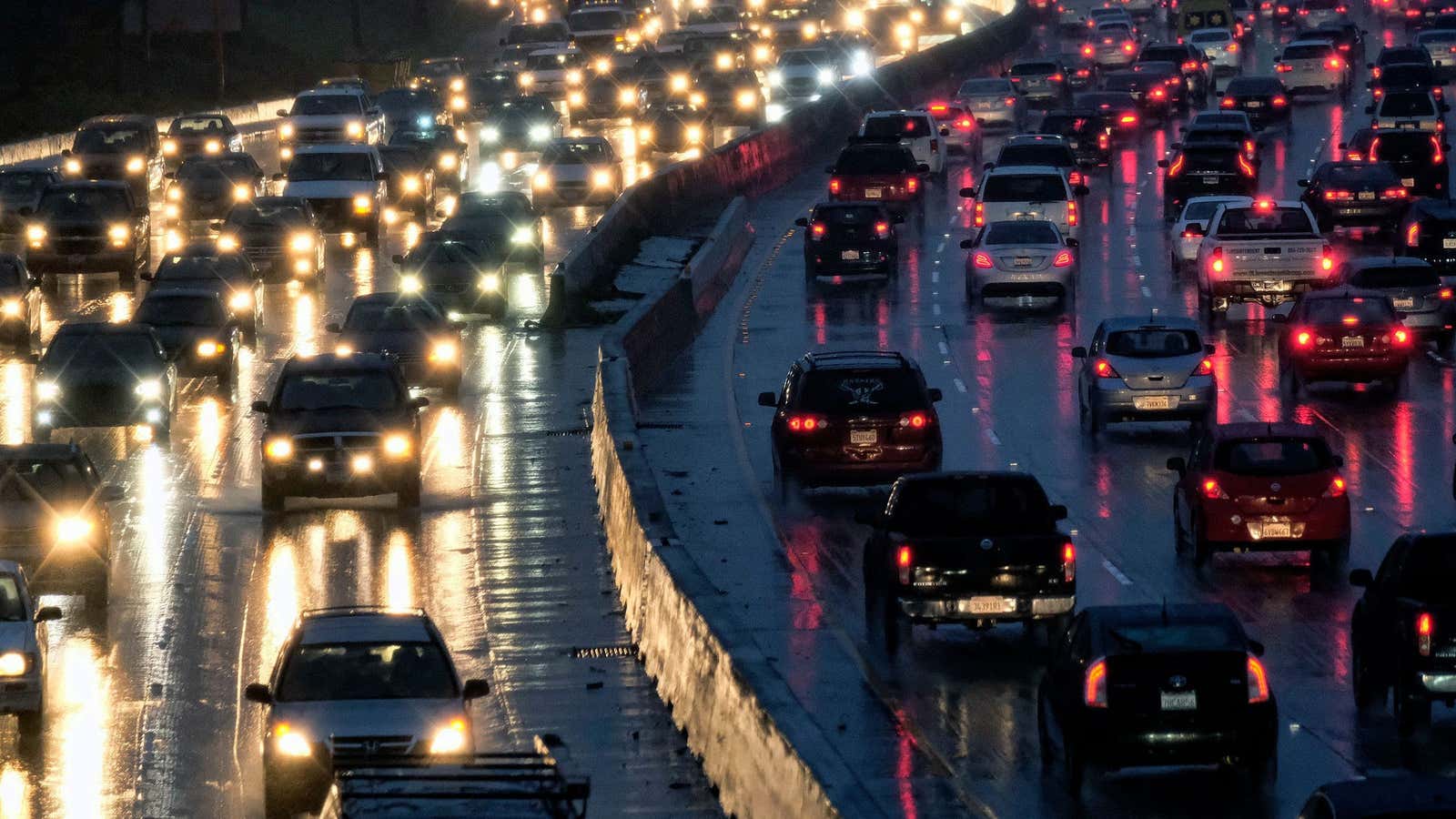Noam Bardin, the CEO of the Google-owned traffic app Waze, wants us to think about carpooling the same way we think about recycling.
Bardin put forward his argument earlier this week at Onward18, a conference in New York focused on how brands adapt to the digital landscape. Waze, the world’s largest crowdsourced navigation app, launched a commuter-based carpooling service in San Francisco in 2016, and rolled out the service for the rest of the US earlier this month.
While other ride-sharing services like Uber and Lyft offer carpooling options, Waze Carpool is designed as a cheap platform to help people coordinate their commutes, rather than a money-making enterprise for drivers. Riders can choose their drivers, and they only pay what’s needed to cover gas. The main goals, Bardin said, are to “make traffic a thing of the past,” to improve user experience, and to better the environment by reducing carbon emissions. Moralizing the idea of carpooling could help make that happen.
Bardin points out that recycling is generally thought of as the right thing to do because society has been conditioned to think that they are harming the environment if they don’t (even if the reality is a little more nuanced.) If you’re riding in a car alone, “You should feel guilty,” Bardin said. “You should feel like you’re killing the polar bears right now. That’s how we will target the single-occupancy issue.”
Even if the idea might be noble, Bardin’s repeated emphasis that if “you’re not part of the solution, you’re part of the problem” could also be seen as a public relations move for Waze Carpool. Bardin did not say if Waze would actually campaign to convince people of this correlation, but other ride-sharing companies like Uber are lobbying for traffic-reducing incentives like congestion pricing, and Bardin said Waze is already working with transit authorities in Palo Alto to do the same.
Carpooling isn’t the perfect solution for traffic congestion. In some cities, for instance, it has actually worsened congestion as people moved away from public transit. In China, ride-hailing giant Didi Chuxing’s carpooling service, Hitch, has been riddled with controversy over repeated complaints of sexual harassment and the murder of two women while using the app.
Still, there are bright spots, like France’s BlaBlaCar, which facilitates shared group rides for long journeys between cities. Similar to BlaBlaCar, Waze Carpool is focused on facilitating existing routes. It is more likely that this element, combined with low prices and more rider autonomy, might help carpooling drive forward, rather than the plight of the polar bears.
